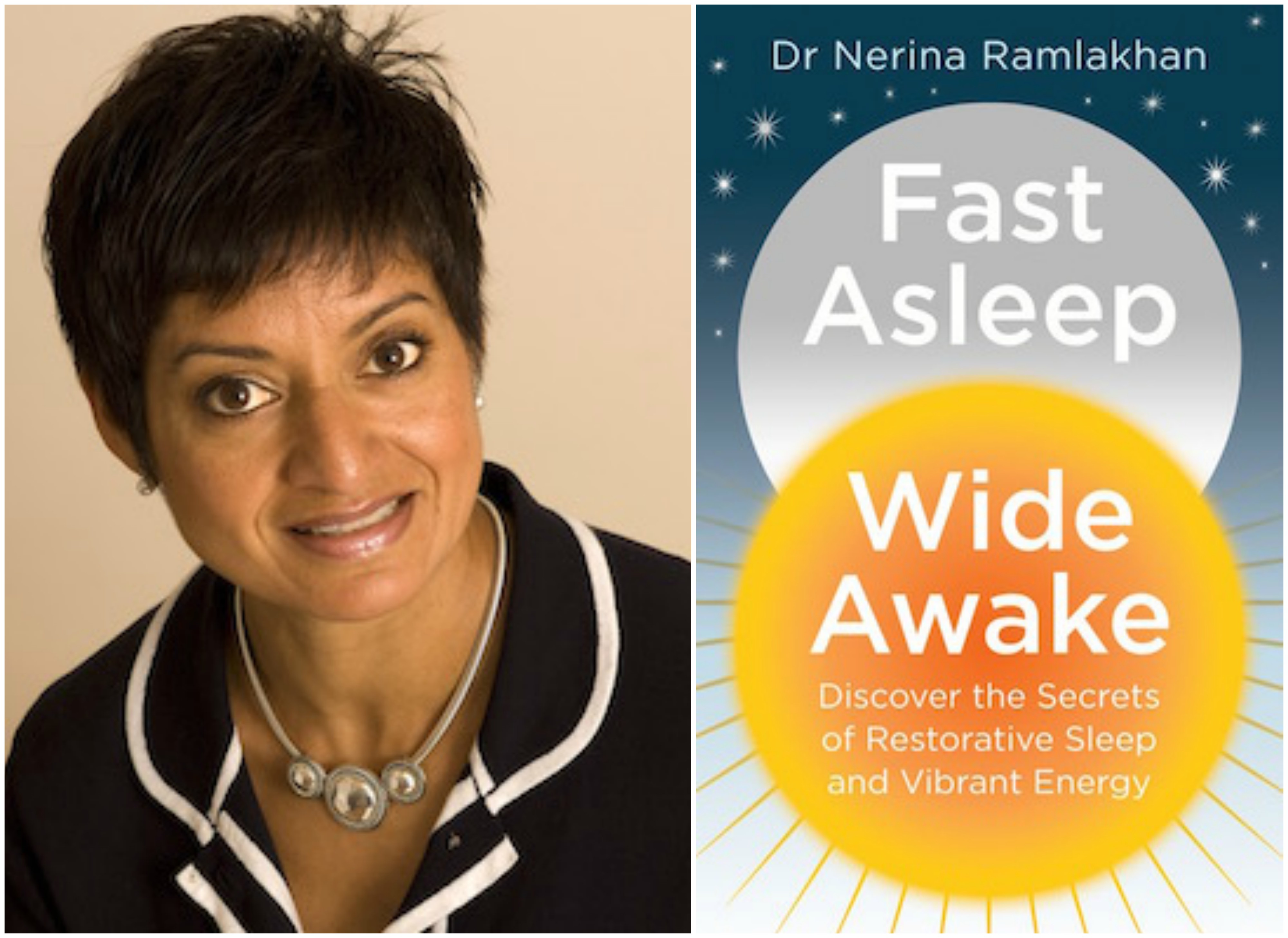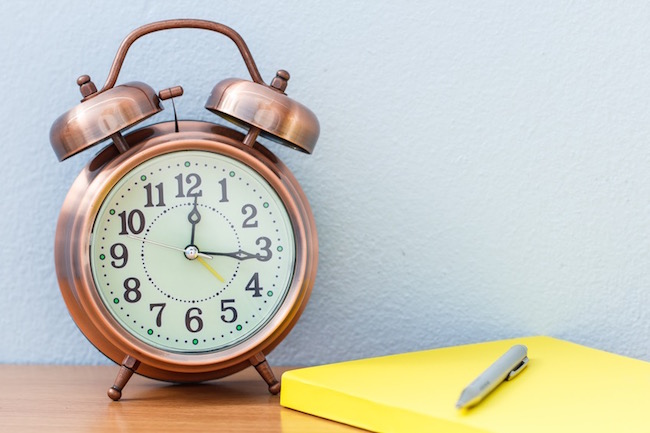Obsessed over sleep? Obsessing over your slumber could be letting us down, says sleep and energy expert Dr Nerina Ramlakhan in her new book
We have all been there – felt so exhausted that we found it hard to focus and stay awake. It’s easy to blame how we’re feeling and behaving on lack of sleep, but why is it that the quality of sleep we’re getting isn’t good enough?
As stated by the NHS, around one in three people in the UK are affected by insomnia and around one in ten of us now take some form of sleeping tablet, but according to sleep and energy expert Dr Nerina Ramlakhan, if we change the way we think about sleep we will be able to have better nights.
Here are 10 unhelpful beliefs that people have about their sleep which can be found in Dr Ramlakhan’s new book Fast Asleep Wide Awake.
1. I can catch up
It often seems like the best idea to make up for lost sleep by sleeping longer in the morning if you went to bed late, or catching up on the weekends when you have the time, but Dr Ramlakhan urges the importance of a good regular sleeping routine:
‘The timing of your sleep is key because while you can catch up lost sleep to some extent you can’t fully recover it,’ she says.
MORE: Could detox teas harm your health?
2. I shouldn’t wake up during the night

Most people have experienced the fear that they are going to wake up several times resulting in a disturbed nights sleep but in reality it is natural to wake up during the night.
‘Sleep studies show that the average human being wakes approximately 10 times during the night. The theory is that this sleep-wake cycle evolved for our survival and safety: we come into a semiconscious state to check that all is well and we are safe and then slide back into sleep,’ says Dr Ramlakhan.
What you shouldn’t do if you wake up is check your phone or the time as these kind of actions are what keep you awake longer. Ultimately, the more you fret about waking up the longer you’ll be awake.
MORE: 7 ways to get your sex life back after babies
3. I need to know the time
Checking the time in the middle of the night can be very disruptive as it can often lead you to work out how many hours you’ve slept so far and how much sleep you have left before your alarm goes off. Then you start overthinking about tomorrow – it’s a vicious cycle. It’s this kind of brain activity that could lead to you to lying awake for ages. This turns on your sympathetic nervous system (the part that deals with problem solving and focus) instead of your parasympathetic nervous system (the one you need on when you’re sleeping as it promotes rest). Turn your alarm clock to face the other way and don’t be tempted to check it if you wake up, just lie there feeling cosy and you’ll be mote likely to fall back to sleep.
MORE: 6 ways to lose weight – by the A-list trainer
4. If I sleep badly it will affect my behaviour tomorrow
We’ve all had a bad nights sleep before and a lot of us have experienced not being able to sleep due to feelings of nervousness or excitement.
We feel that we must get a good nights sleep to prepare for the big day ahead tomorrow, but Dr Ramlakhan recalls a time where she told a client to ‘forget about sleeping’ the night before an important event.
MORE: Eat, think and train like an olympic athlete
’I once worked with a Premiership footballer, who felt worried the night before a big game for England. I advised him to forget about sleeping the night before a game and instead focus on resting in bed.
‘I also asked him to recall the number of times he’d slept badly before a big game and still performed well the next day. He was able to remember several occasions when this had happened and this also helped to take the pressure of his sleep.’
This proves that the less you worry about sleeping, the less it affects your performance.
5. I need 7 – 8 hours of sleep to function
According to research conducted by The National Sleep Foundation in the US, the recommended daily allowance of sleep for 18 – 64 year olds is seven to nine hours a night, but this doesn’t mean you should panic if this doesn’t happen. Obsessing over the amount you sleep you’re having isn’t healthy. Dr Ramlakhan believes you should listen to your own body.
‘If you wake up feeling refreshed after just five hours sleep then you’re probably getting enough sleep for you.’
MORE: 9 ways to work mindfulness into your day
6. It is useful to measure my sleep
As we have learned above, the more we think about sleep in depth, the more likely our sleeping patterns will be affected for the worse, so this unhelpful belief is technically already answered – no, it is not useful to measure sleep. Counting the hours could lead you to be more anxious about the fact you didn’t get your eight hours.
‘To sleep well you need to let go, trust and relax and not measure, control or calculate,’ teaches Dr Ramlakhan.
MORE: 5 stress symptoms and EXACTLY how to fix them fast
7. Sleep is what happens when my eyes are closed
You can be in the early stages of sleep without even knowing it. It’s possible to be on your way whilst your eyes are still open. When you have been concentrating for too long or your brain and body is tired it can fall into a trance-like state called a hypnagogic trance which is a deep form of relaxation where you are able to develop information and stay sharp and focused as the working memory is refreshed.
‘Sometimes we fall into a hypnagogic trance during the day. You might have noticed this when, for example, you’ve been staring at a screen for too long, bombarding the brain with information’.
When this happens, the brain is trying to refresh itself and secure the information you’ve taken in, making it easier to focus afterwards.
MORE: 5 summer beauty foods from the A-list make up artist
8. I shouldn’t nap during the day or I can’t nap
Many people avoid napping during the day due to the worry that they won’t sleep at night or perhaps because they don’t think they can sleep in the day. But Dr Ramlakhan strongly believes in napping and says that everyone can nap if they learn how to.
A nap doesn’t necessarily mean a sleep. It just involves shutting your eyes, relaxing and letting your thoughts go.
‘I find napping can almost help to reprogram your body to rest, relax and let go. But napping must be done with caution.
A nap doesn’t necessarily mean a sleep. It just involves shutting your eyes, relaxing and letting your thoughts go
‘If you are a good sleeper, then napping is not the technique for you. However, if your sleep is disturbed at night and you feel tired during the day, then powering down for 10 – 20 minutes at some time between 2 and 4pm has a number of benefits.’
MORE: 9 healthy fats that help you live longer
The benefits of napping for a short amount of time in a day includes: increasing focus as your shutting yourself off from your thoughts and worries meaning that your mind is refreshed afterwards, it prepares you for a deeper sleep later on, and as napping isn’t solely about sleeping, it allows you to let go without stressing about not being able to get to sleep.
9. Insomnia runs in my family / my sleep problem can’t be fixed
Insomnia is not a gene so technically does not run in your family, but you may have simply picked up some bad habits. If you change your sleeping patterns then you will be able to overcome the sleepless nights.
If you tell yourself your sleep problem can’t be fixed, it probably won’t be because you’re in a constant battle with your mind so that nothing you attempt will work for you.
‘Stay open to the possibility that you can change your relationship with sleep – even if you don’t entirely believe it at this stage,’ say Dr Ramlakhan.
MORE: 10 health experts reveal the ONE item they would take to a desert island
10. I need to take sleeping tablets
If you’re struggling with sleep it is important not to believe that the only way to overcome it is by taking tablets. In her book, Fast Asleep Wide Awake (FAWA) Dr Ramlakhan shares a four-part sleeping formula to teach you how to sleep deeply and embrace life positively. It helps you to shift your awareness, clean up your energy, create pure, deep sleep and create something more of your life by using tools and techniques based on Western science and Eastern practices.

Fast Asleep, Wide Awake: Discover the secrets of restorative sleep and vibrant energy by Dr Nerina Ramlakhan was published by Harper Collins on August 11th and is available to purchase from Amazon for £9.09.
MORE: On a gluten-free diet? Chef Raymond Blanc’s gluten-free cookery class
Like this article? Sign up to our newsletter to get more articles like this delivered straight to your inbox.































































